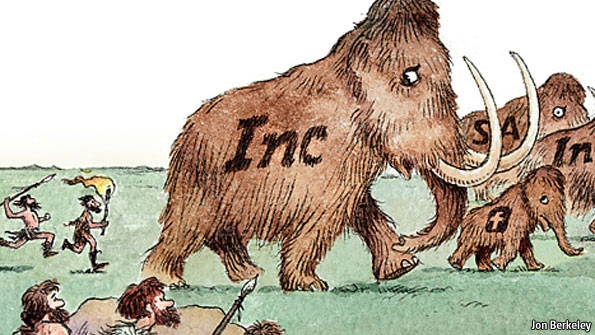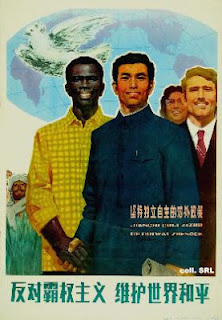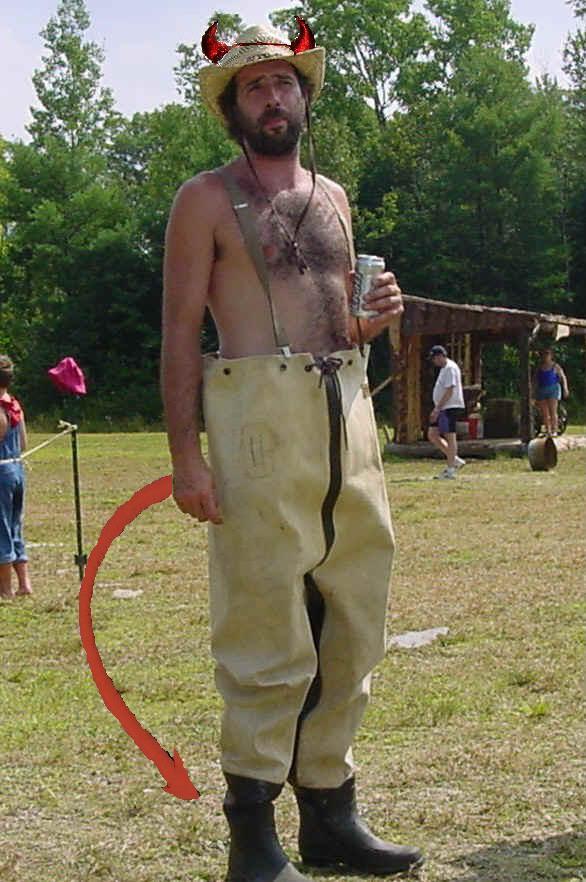« April 2012 | Main | June 2012 »
May 29, 2012
Marrakesh by Design.
Buy this book, okay?
.jpg)

Posted by JD Hull at 12:46 AM | Comments (0)
May 27, 2012
The Economist: "Companies are like jets; the elite go private."

Photo: Jon Berkeley and The Economist.
The Decline of the Publicly-Traded Company? The public company idea is only about 150 years old and, like the slightly older animal we call "the corporation", is so far only a blip on the screen of world economic history. What will the future hold for companies in which the public is offered a shot at sharing in a company's growth and profits in return for their contribution of capital? Read in The Economist "The endangered public company: The rise and fall of a great invention, and why it matters".
The number of public companies has fallen dramatically over the past decade—by 38% in America since 1997 and 48% in Britain. The number of initial public offerings (IPOs) in America has declined from an average of 311 a year in 1980-2000 to 99 a year in 2001-11. Small companies, those with annual sales of less than $50m before their IPOs—have been hardest hit. In 1980-2000 an average of 165 small companies undertook IPOs in America each year. In 2001-09 that number fell to 30. Facebook will probably give the IPO market a temporary boost—several other companies are queuing up to follow its lead—but they will do little to offset the long-term decline.
Posted by JD Hull at 11:00 PM | Comments (0)
May 26, 2012
Remembering: What do you remember about childhood? Does it matter?
I am a first-born who can remember growing up. I can remember lots--or at least lots of versions--of it. Lots of people in different places. Family. Friends. Victories. Defeats. Washington D.C., Chicago, Grand Rapids, Detroit, Chicago again, summer retreats in Michigan. Cincinnati. Durham, North Carolina (after all, most of us are still children when we enter college; at 18, I was an ever-morphing mercurial man-child). Those memories DO matter. They instruct. They even entertain. Done right, they are a source of pleasure. But you need to listen to them. Like homing pigeons, they are, if you think about it. You can let memories dump on you. Or you can let them carry messages.

"French Girl", by Richard Vanek, a Slovakian photographer who lives in the Netherlands.
Posted by JD Hull at 02:03 PM | Comments (0)
May 24, 2012
Clients to Firms: Keep your Myopics and Silos of Expertise. But let there be Quarterbacks and General Managers.
.jpg)
Clients: "We need Quarterbacks and Project Managers."
Redux and Tribute to the Prescience of Carolyn Elefant and Reese Morrison: The Big Law Firm Curse: "An aggregation of narrow views." We wrote this November 10, 2008:
The Big Law Firm Curse: "An aggregation of narrow views. Boom! Morrison nails it. Elefant names it.
Via Legal Blog Watch, and the alert eye of Ed. of Blawg Review, I read Rees Morrison's comprehensive and perceptive piece in the New York Law Journal about what larger law firms can and cannot do for clients.
My take: As a general rule, if you are that rare GC who doesn't know the terrain yet, and have no idea where else to turn, go to a big firm first. I can name 10 good ones I like between 500 and 3000 lawyers in five key practice areas that my firm and other boutiques conduct as well. Why not? The talent is there. It's still a good bet.
The Hitch: it's there somewhere--not throughout, and not in all areas--and you do have to find it.
On talent, both abroad and in the U.S., large law firms currently are a double-edged sword. They do have, and always will have talent; however, in recent years, they've diluted the gene pool on lateral hires in order to get bigger. So Ferraris, Jaguars, Chevy Aveos, pick-up trucks and rickshaws all run on the same track. And their offices in smaller cities abroad can be spotty, mediocre and even scary. (Do you really want "Borat" as your company's lawyer in, say, Eastern Europe?--because that is what you might get.)
Further, and as Morrison points out, there are in larger firms troublesome inflationary pressures on hours billed. Value questions. Forget about what the markets will bear; on a good day, first and second year associates are worth about -$50.00/hour, once you factor in what it takes to teach, guide and monitor them, and "remediate" their work.
An even bigger problem for WAC?, however, is what Morrison calls "deep specialization, but narrower perspective". Oddly, in the last year I have heard two in-house counsel mention this themselves about mega-firms: the lack of "broad-gauged" lawyers. These are leaders and facilitators who, in addition to a their own specialty, have an expansive frame of reference about the world, business, other practice areas, and how they all fit together. As Ari Gold would say, "Boom!" Morrison has nailed the biggest substantive large law firm problem. In her summary of Morrison article at LBW, Carolyn Elefant describes it the lack of "the ability to offer a broad perspective--only an aggregation of narrow views." Bravo, Morrison, and Elefant.
Posted by JD Hull at 10:59 AM | Comments (0)
May 22, 2012
Tom Doctoroff in WSJ on China now: Increasingly international--but distinctly Chinese.
If you missed it three days ago when it appeared in the weekend edition of The Wall Street Journal, see author-consultant Tom Doctoroff's authoritative, insightful and often surprising snapshot of China in "What the Chinese Want". The article helps roll out the carpet for Doctoroff's new book on China, being released today. Three excerpts from the article:
China is a Confucian society, a quixotic combination of top-down patriarchy and bottom-up social mobility. Citizens are driven by an ever-present conflict between standing out and fitting in, between ambition and regimentation. In Chinese society, individuals have no identity apart from obligations to, and acknowledgment by, others. The clan and nation are the eternal pillars of identity. Western individualism—the idea of defining oneself independent of society—doesn't exist.
The speed with which China's citizens have embraced all things digital is one sign that things are in motion in the country. But e-commerce, which has changed the balance of power between retailers and consumers, didn't take off until the Chinese need for reassurance was satisfied. Even when transactions are arranged online, most purchases are completed in person, with shoppers examining the product and handing over their cash offline.
Chinese at all socioeconomic levels try to "win"—that is, climb the ladder of success—while working within the system, not against it. In Chinese consumer culture, there is a constant tension between self-protection and displaying status. This struggle explains the existence of two seemingly conflicting lines of development. On the one hand, we see stratospheric savings rates, extreme price sensitivity and aversion to credit-card interest payments. On the other, there is the Chinese fixation with luxury goods and a willingness to pay as much as 120% of one's yearly income for a car.

Posted by JD Hull at 02:20 AM | Comments (0)
May 20, 2012
Born in Chicago.
Fierce as a dog with tongue lapping for action, cunning as a savage pitted against the wilderness,
Bareheaded,
Shoveling,
Wrecking,
Planning,
Building, breaking, rebuilding,
Under the smoke, dust all over his mouth, laughing with white teeth.
--from Carl Sandburg's "Chicago"

NATO Summit: Saturday night live on Michigan Avenue (AFP photo).
Posted by JD Hull at 06:50 PM | Comments (0)
May 19, 2012
Saturday Layover in Chicago: An honor. This is one mean, wonderful hardworking town.
The Newport Folk Festival July 26 1965
Posted by JD Hull at 08:13 PM | Comments (0)
May 18, 2012
Greece's Syriza Leader to Europe: You Cut Off Additional Funds, We Stop Paying Our Debts.
"Gee, really glad we came up with all that emergency money." The man who will likely be Greek's next prime minister has told the Wall Street Journal that if Europe stops funding his recession-ridden country, Greece will simply stop paying its creditors. Greece's austerity program is widely thought to be failing. It is now year five of the country's financial crisis. The economy shrinks substantially each year (headed toward about 5% this year). Half of all young people are out of work. Funding from outside Greece is now paying for basic services, like schools and hospitals. See this story.

Alexis Tsipras, the 37-year-old head of the Coalition of the Radical Left, also known as Syriza.
Posted by JD Hull at 07:23 AM | Comments (0)
May 17, 2012
Eastern Market: The Best 30 Minutes of My Day on Capitol Hill.

In my old 'hood: A corner of the Hill to eat, drink, buy oddities and watch humans. A small funky Roman forum. And the last of the many public markets that once served Washington, D.C. over a century ago.
Posted by JD Hull at 11:22 PM | Comments (0)
May 14, 2012
The Economist: Downing Street gets down--and down to work.
For The Economist's take on the shape of the United Kingdom and the governing Conservative Party's mid-term slump, see "The Cameron Government: Crisis? What Crisis?". Excerpt:
Two years ago this week David Cameron and Nick Clegg launched their coalition government in a sun-dappled Downing Street garden, at a joint press conference so filled with smiles, jokes and shared glances that it was compared to a gay wedding. On May 8th Britain’s Conservative prime minister and his Liberal Democrat deputy renewed their coalition vows in a tractor factory. There were few jokes. The work of government was “hard”, Mr Cameron told stony-faced workers.
Two-thirds of voters now disapprove of Mr Cameron’s performance and three-quarters disdain Mr Clegg’s. In local elections on May 3rd their parties lost hundreds of council seats, mostly to the opposition Labour Party: when Boris Johnson, the Tory mayor of London, bucked the trend and kept his job, that prompted gossip that he would be a better leader.
Britain’s economy has dipped back into recession. A judicial inquiry into the press has revealed a shamefully cosy relationship between Conservative leaders and newspapers owned by Rupert Murdoch. The government, and the prime minister in particular, are described as “out of touch” and told to “get a grip”—and that is just to quote Conservatives in Parliament.

Posted by JD Hull at 12:36 PM | Comments (0)
May 11, 2012
China in Africa: Is China putting the hurt on Africa's free press?
Western media has long given Africa a consistently negative--if indeed often painfully accurate--portrayal as troubled, poor, corrupt and violent. Is China, now Africa's biggest trading partner, engaged in a new public relations crusade to counter that image? If so, is China's new campaign an even-handed one? See at Deborah Brautigam's China in Africa "Africa's Free Press Problem: Is China Causing It?"

From Henry Hall's China Africa News
Posted by JD Hull at 11:59 PM | Comments (0)
May 10, 2012
What do GCs, CEOs and savvy clients want from a law firm?
1. Quarterbacks. Not mechanics and generic dweebs.
2. Value. Not reduced rates.
3. Verve. Not risk aversion.
4. Straight Talk. Not lawyer-accountant wank-speak.
5. Sane Writing. No typing with a lisp, either.

Lord Chief Justice John ("Pompous") Popham, 1603.
Posted by Holden Oliver (Kitzbühel Desk) at 01:00 AM | Comments (0)
May 07, 2012
One possible business model: Choose your clients. Research them. Snipe.
Read at Simple Justice Scott Greenfield's masterfully-titled post "The Message of 500 Clients". And then read my comment:
Stick a fork in Hull McGuire PC. As Scott well knows, on clients, we snipe. We choose. We go after at most 2 new clients a year after we research them like you would research a stock. We consider it a success if we get one of them as a client in 18 months after the first face-to-face meeting. The rest is repeat biz. Rather be a street person than market or practice any other way. Just one possible way to look at volume in clients.

500-Clients Specimen.
Posted by JD Hull at 06:15 PM | Comments (0)
May 06, 2012
Love and hope and sex and dreams.
The winners? They refused to follow other people's bad scripts.
--KLK, All Over Manhattan Tonight
Posted by Holden Oliver (Kitzbühel Desk) at 11:59 PM | Comments (0)
May 05, 2012
West Africa: Liberia Soul-Searching.
In a multitude of ways, no African state is more closely tied to the U.S. than Liberia, the West Africa region colonized by freed American slaves beginning in the 1820s. See this gem in The Daily Beast we almost missed published April 28: "Liberia Rethinks Its Past in Wake of Charles Taylor War-Crimes Verdict". Excerpt:
Liberia’s fractured history was again in view last week when The Hague announced a guilty verdict in the trial of Charles Taylor, the warlord turned elected president. Taylor was convicted of aiding and abetting war crimes and crimes against humanity in neighboring Sierra Leone during that country’s brutal civil conflict. In Monrovia, the verdict was welcomed by some Liberians and condemned by others, particularly former child soldiers for whom Taylor is a father figure—a sign that the verdict marks only the beginning of soul-searching for the country.
For most of its history, Liberian society and political life were dominated by the Americo-Liberians, descendants of the freed slaves, who mimicked the lives and culture of their onetime owners in the U.S. Citizenship was denied to natives until 1946, when then-president William V.S. Tubman granted them the right to vote, and it wasn’t until the 1960s that tribesmen won legislative representation. For 102 years, Liberia was a one-party state, with the True Whig Party enjoying a monopoly.

Jane Hahn/NYT
Posted by JD Hull at 11:59 PM | Comments (0)
No Sleep till Brooklyn: Adam Yauch (1964-2012)
Real music for real kids in NYC. Non-wimpy with satiric flair. RIP, sir.
Posted by JD Hull at 12:59 AM | Comments (0)
May 02, 2012
In The Economist: Seriously, two (2) managers in each position makes a lot of sense.
You need one firm leader. But customers and clients need two folks on each project, no matter how small. Two people need to be available for both questions and a reserve of fresh ideas. But just two. Two project managers, and perhaps one with a "veto power". See The Economist: "In one's company, two's a crowd". And see our post "The Wonderful Twos".

Posted by JD Hull at 11:59 PM | Comments (0)